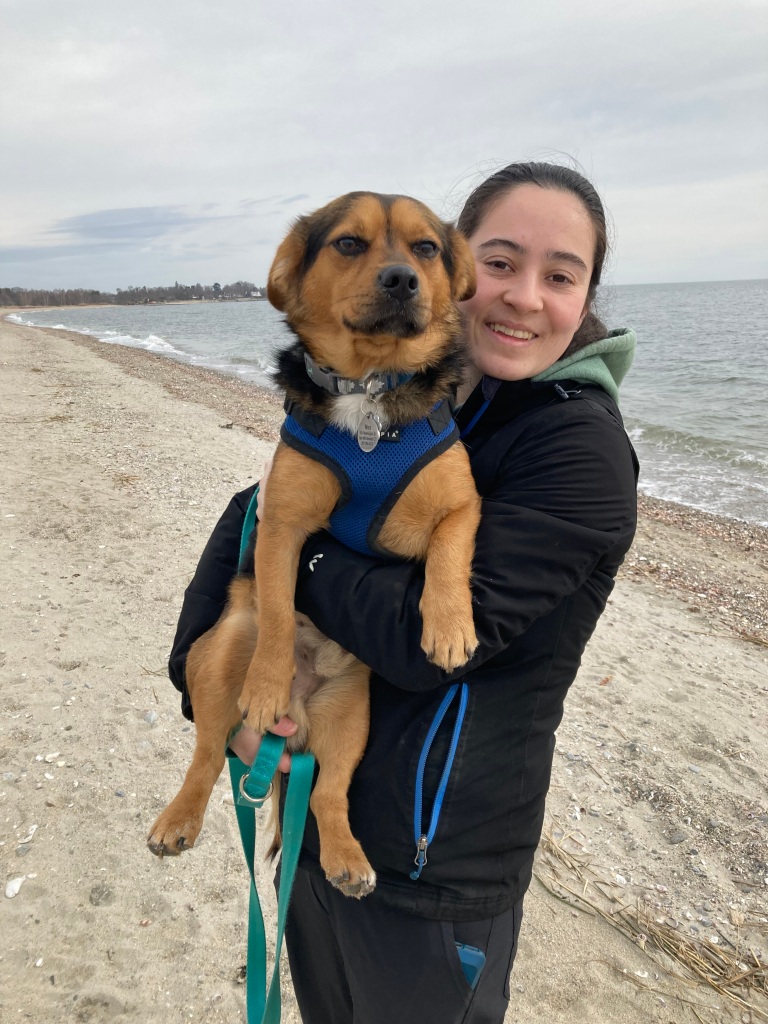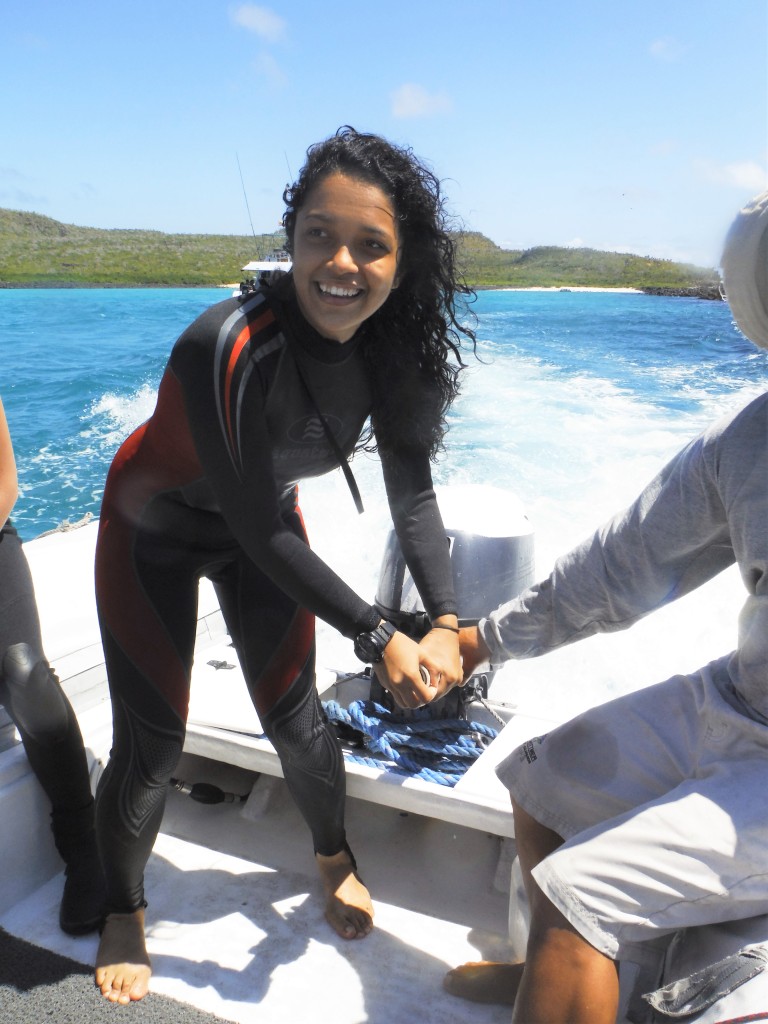STRI INTERN
Soy María Mercedes Gómez, estudiante de biología en la Escuela Superior Politécnica del Litoral (ESPOL). Nacida en Guayaquil, Ecuador, siempre he estado fascinada con la biodiversidad y la paleontología de vertebrados. Mis primeros recuerdos incluyen pasar mañanas completas buscando peces y equinodermos en las piscinas de marea de la playa de Ballenita, Santa Elena, y explorando los manglares del Parque Histórico Guayaquil.
Tengo experiencia en microbiología de extremófilos, micología y biología de la vida salvaje. He sido voluntaria en el Parque Nacional Galápagos en el cuidado de tortugas gigantes y he trabajado en el Centro de Investigaciones Biotecnológicas del Ecuador (CIBE) en la bioprospección de bacterias antárticas. Durante mi estancia en O’Dea Lab, estaré trabajando con dentículos de tiburones fosilizados para entender los patrones de abundancia de sus poblaciones ancestrales. Mis otros intereses de investigación son la paleontología, el comportamiento animal y la biomecánica. En el futuro, busco especializarme en paleobiología de dinosaurios terópodos.
I’m María Mercedes Gómez, a student of biology at Escuela Superior Politécnica del Litoral (ESPOL). Born in Guayaquil, Ecuador, I’ve always been fascinated by nature and vertebrate paleontology. My earliest memories include spending whole mornings searching for fish and echinoderms in the tide pools of Ballenita Beach, Santa Elena, and exploring the mangroves at Parque Histórico Guayaquil.
I’m experienced in extremophile microbiology, mycology, and wildlife biology. I have volunteered for the Galápagos National Park in the caretaking of giant tortoises and worked at Centro de Investigaciones Biotecnológicas del Ecuador (CIBE) in the bioprospection of Antarctic bacteria. During my stay at O’Dea Lab, I will be working with fossil shark denticles to understand the abundance patterns of their ancient populations. My other research interests are in paleontology, animal behavior, and biomechanics. In the future, I seek to specialize in the paleobiology of theropod dinosaurs.










 I’m a Biology undergraduate student at University of Panama profoundly interested in Marine Biology and paleontology, especially the evolution, adaptation and ecology of coral reefs. I’m working on a project that consists of reconstructing the Caribbean reef fish communities of the past, and my master tools for this research are fish otoliths. Otoliths have distinct shapes that enable us to identify fish families, sometimes even to the level of species and fossil otoliths may help us reconstruct the reef fish community of the Caribbean 7000 years ago (i.e. before human impacts). This information will provide a baseline that will enable us to compare “pristine” with modern reef fish communities.
I’m a Biology undergraduate student at University of Panama profoundly interested in Marine Biology and paleontology, especially the evolution, adaptation and ecology of coral reefs. I’m working on a project that consists of reconstructing the Caribbean reef fish communities of the past, and my master tools for this research are fish otoliths. Otoliths have distinct shapes that enable us to identify fish families, sometimes even to the level of species and fossil otoliths may help us reconstruct the reef fish community of the Caribbean 7000 years ago (i.e. before human impacts). This information will provide a baseline that will enable us to compare “pristine” with modern reef fish communities.
You must be logged in to post a comment.